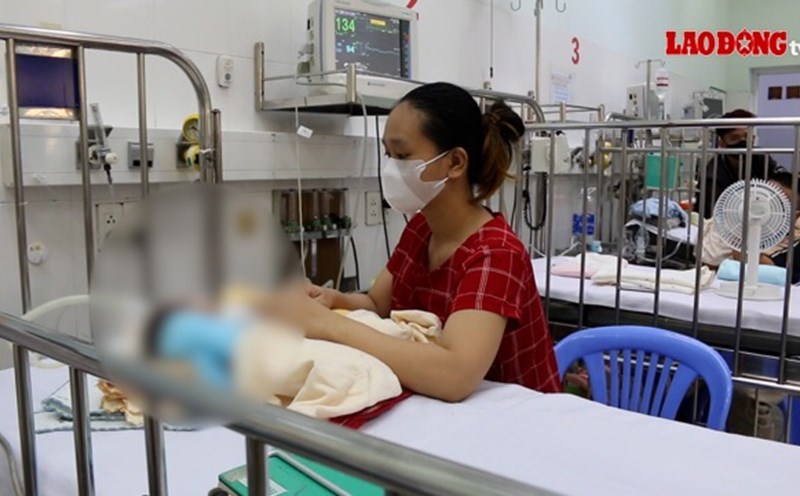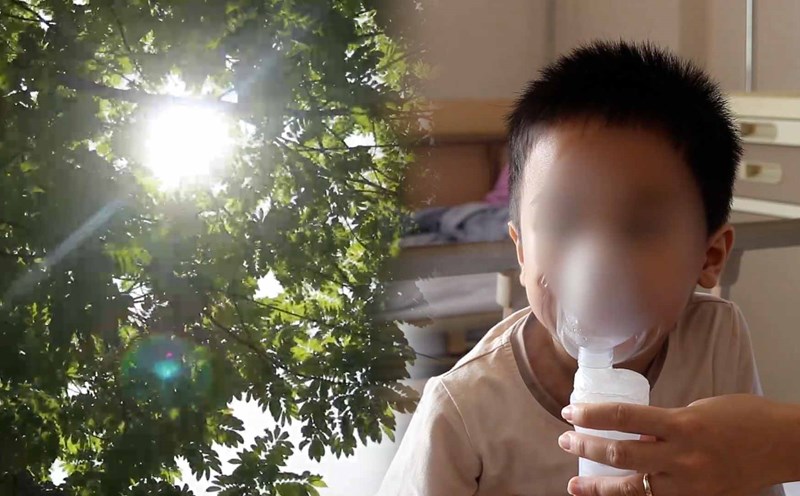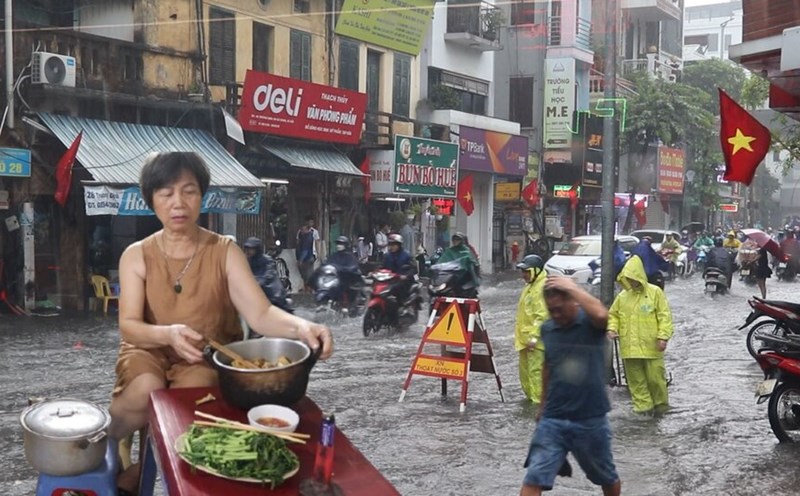Ms. N.M.N (30 years old, Dong Nai) said that her 4-year-old son initially just had a runny nose, sneezed, and thought he felt a little less. A day later, the child coughed, had a fever, had to be hospitalized and was diagnosed with pneumonia. Similarly, Ms. T.N.M (28 years old, Ho Chi Minh City)'s 5-month-old daughter suddenly coughed a lot, took a short breath, and stopped sucking. Doctors determined that the child had acute bronchial Urinitis due to erratic weather, requiring respiratory support.
BSCK2 Ho Thanh Phong, Head of Respiratory Department 1 - Children's Hospital 2, said that each day the department receives about 170-200 pediatric patients with respiratory diseases, mainly acute bronchial tieuitis, pneumonia, asthma. About 10-15% of severe cases require respiratory support, mostly in children under 12 months old. The difference in temperature between day and night strongly affects the children's inherently weak respiratory system. If children have underlying diseases, the risk of complications is even higher. Parents should not wait until they are seriously ill to take them to the doctor, Dr. Phong emphasized.
Dr. Phong also warned parents not to buy medicine without permission or ask for medicine from the pharmacy. If after 24 hours of treatment at home there is no improvement, the child should be taken to the hospital immediately.
Not only children but also the elderly are vulnerable. T.H (28 years old, Ho Chi Minh City) said that in just one week, everyone in the office coughed, had a runny nose, and a headache. She herself was diagnosed with a viral infection due to weather.
Dr. Giang Minh Nhat, Deputy Head of the Department of Cardiovascular Resuscitation - Gia Dinh People's Hospital, said that recently, the number of cases of pneumonia and lower respiratory tract inflammation in the elderly has increased slightly, especially in groups with underlying diseases and poor immunity. Many cases of late hospitalization lead to serious condition.
According to Dr. Nhat, entering and leaving air conditioners that are too cold to do outdoors can easily cause "heat shock", weaken the immune system, and create conditions for viruses and bacteria to attack. He recommends: drinking enough water, avoiding going out for 10-16 hours, adjusting the air conditioner to no more than 7°C compared to outdoors, getting vaccinated against influenza and whooping cough, and going to the doctor early if you have respiratory symptoms.
Both doctors agree: young children and the elderly need to be closely monitored for their health when the weather is erratic; keep the living environment clean and airy; supplement vitamins; do not take medicine without permission. Parents should let their children stay home from school when they have respiratory symptoms to avoid spreading.











